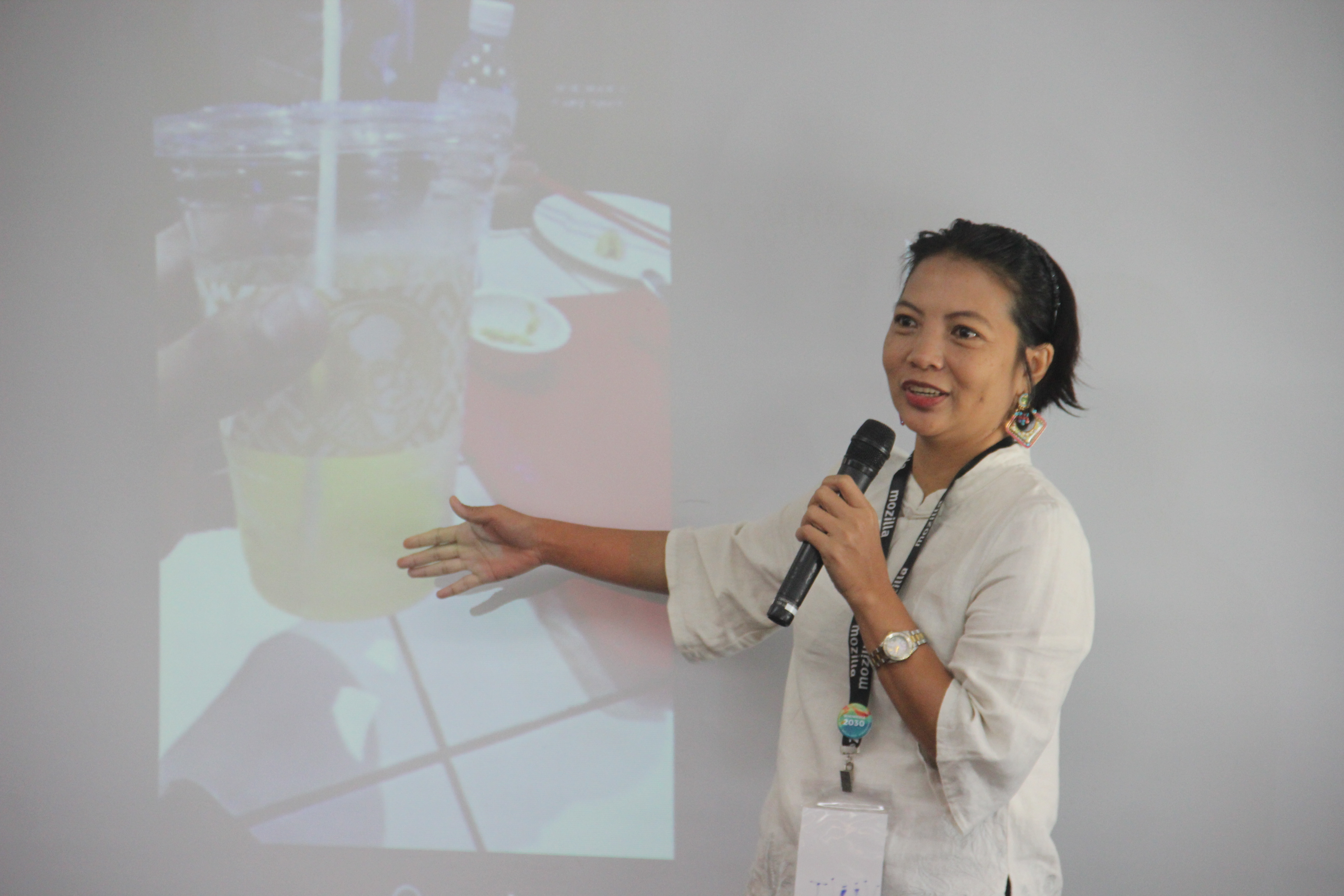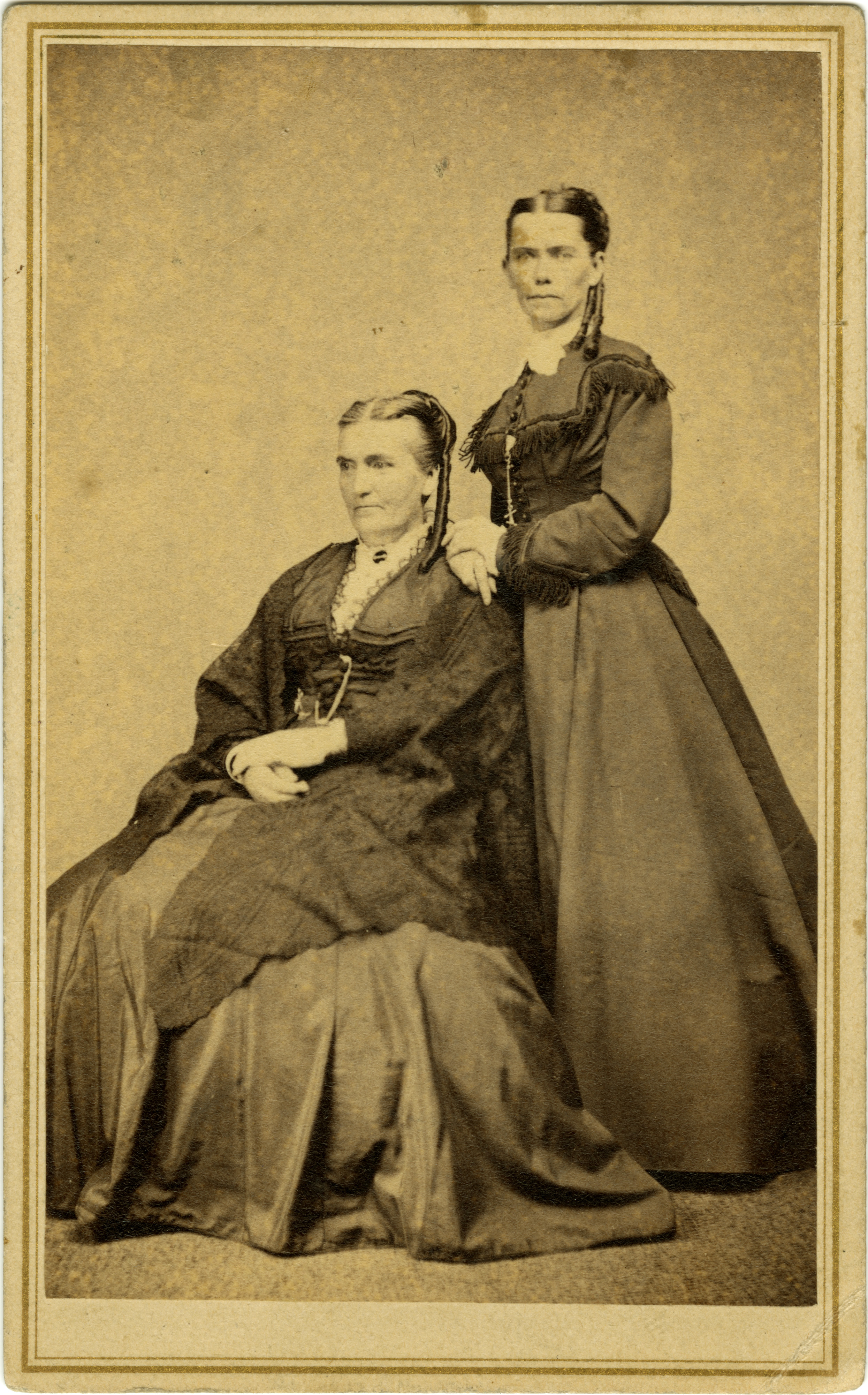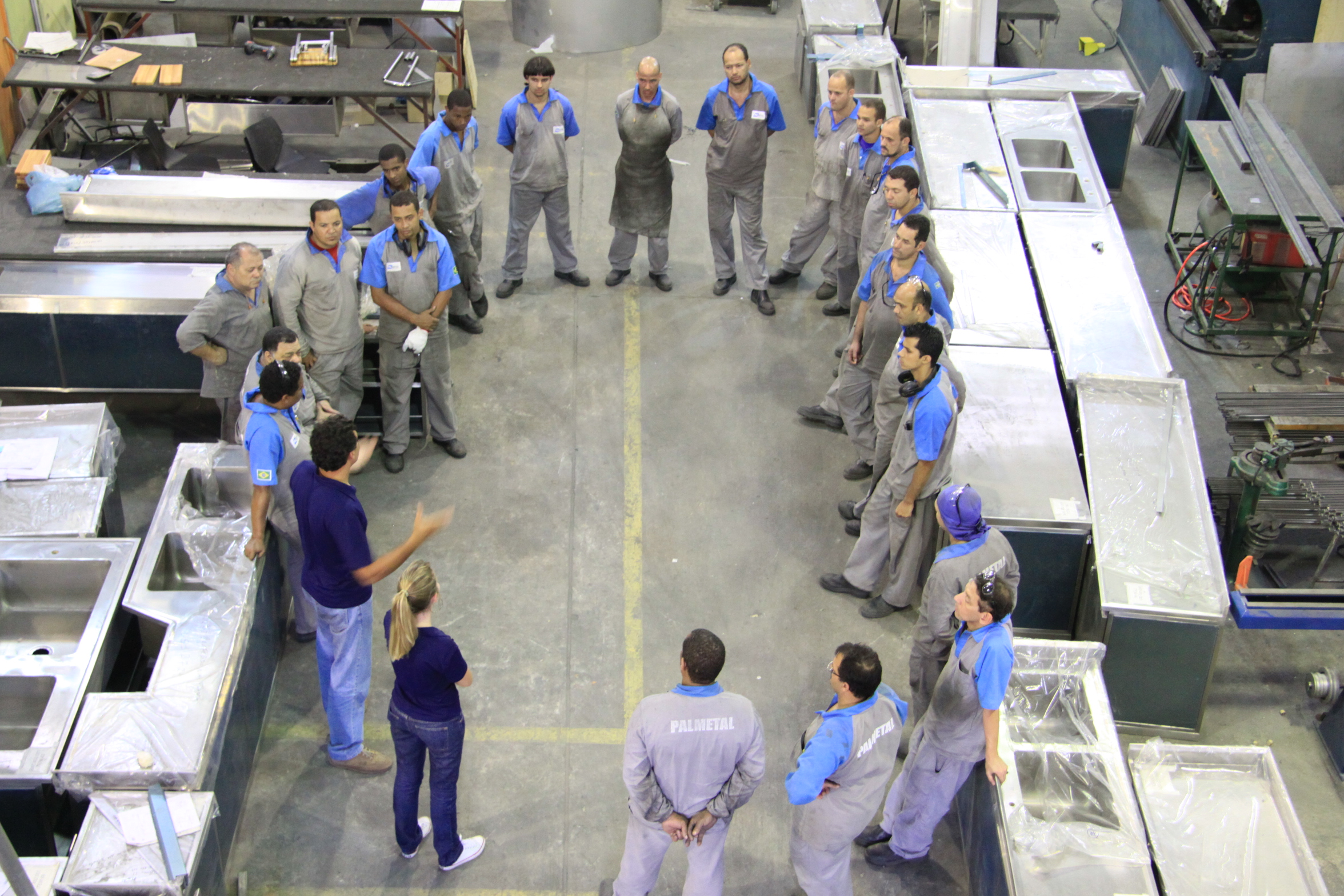|
Facilitator
A facilitator is a person who helps a group of people to work together better, understand their common objectives, and plan how to achieve these objectives, during meetings or discussions. In doing so, the facilitator remains "neutral", meaning they do not take a particular position in the discussion. Some facilitator tools will try to assist the group in achieving a consensus on any disagreements that preexist or emerge in the meeting so that it has a solid basis for future action. Definitions There are a variety of definitions for ''facilitator'': * "An individual who enables groups and organizations to work more effectively; to collaborate and achieve synergy. He or she is a 'content neutral' party who by not taking sides or expressing or advocating a point of view during the meeting, can advocate for fair, open, and inclusive procedures to accomplish the group's work" – Michael Doyle * "One who contributes structure and process to interactions so groups are able to functio ... [...More Info...] [...Related Items...] OR: [Wikipedia] [Google] [Baidu] |
Consensus Decision-making
Consensus decision-making or consensus process (often abbreviated to ''consensus'') are group decision-making processes in which participants develop and decide on proposals with the aim, or requirement, of acceptance by all. The focus on establishing agreement of at least the majority or the supermajority and avoiding unproductive opinion differentiates consensus from unanimity, which requires all participants to support a decision. Origin and meaning of terms The word ''consensus'' is Latin meaning "agreement, accord", derived from ''consentire'' meaning "feel together". Broadly, ''consensus'' relates to a generally accepted opinion, but in the context of this article refers to the process ''and'' the outcome of consensus decision-making (e.g. "to decide ''by'' consensus" and "''a'' consensus was reached"). History Consensus decision-making, as a self-described practice, originates from several nonviolent, direct action groups that were active in the Civil rights, Pe ... [...More Info...] [...Related Items...] OR: [Wikipedia] [Google] [Baidu] |
Facilitation (business)
Facilitation in business, organizational development (OD) and consensus decision-making refers to the process of designing and running a meeting according to a previously agreed set of requirements. Facilitation concerns itself with all the tasks needed to reach a productive and impartial meeting outcome that reflects the agreed objectives and deliverables defined upfront by the meeting owner or client. Areas of application Facilitation is "used in a wide range of situations and occupations, including workplaces, leisure and health activities, organizational planning and community development". Facilitation serves the needs of any group who are meeting with a common purpose, whether it be making a decision, solving a problem, or simply exchanging ideas and information. It does not lead the group, nor does it try to distract or to entertain. A slightly different interpretation focuses more specifically on a group that is engaged in experiential learning.Heron, J. ''The Complete F ... [...More Info...] [...Related Items...] OR: [Wikipedia] [Google] [Baidu] |
Shimer College
Shimer Great Books School (pronounced ) is a Great Books college that is part of North Central College in Naperville, Illinois. Prior to 2017, Shimer was an independent, accredited college on the south side of Chicago, with a history of being in different cities in Illinois prior to that. Founded in 1853 as the Mount Carroll Seminary in Mount Carroll, Illinois, the school became affiliated with the University of Chicago in 1896 and was renamed the Frances Shimer Academy after founder Frances Wood Shimer. It was renamed Shimer College in 1950, when it began offering a four-year curriculum based on the Hutchins Plan of the University of Chicago. After the University of Chicago parted with both the college and the Hutchins Plan in 1958, Shimer continued to use a version of that curriculum. The college relocated to Waukegan in 1978 and to Chicago in 2006. In 2017, it was acquired by North Central College which established the Shimer Great Books School to continue offering its ... [...More Info...] [...Related Items...] OR: [Wikipedia] [Google] [Baidu] |
John Heron (social Scientist)
John Heron (24 September 1928 – 2022) was a pioneer in the creation of a participatory research method in the social sciences, called co-operative inquiry. This was based on his work in 1968–69 on the phenomenology of social encounter, and which has been applied by practitioners in many fields of professional and personal development. He was committed to the process of co-operative inquiry, in whatever field it is applied, as a basic form of relational and participative spiritual practice. Career Heron was the founder and director of the Human Potential Research Project, University of Surrey from 1970 to 1977, the first university-based centre for humanistic and transpersonal psychology and education in Europe. He was assistant director of the British Postgraduate Medical Federation at the University of London from 1977 to 1985, in charge of an innovative programme of personal and professional development for hospital doctors and GPs, including a co-operative inquiry into who ... [...More Info...] [...Related Items...] OR: [Wikipedia] [Google] [Baidu] |
Meetings
A meeting is when two or more people come together to discuss one or more topics, often in a formal or business setting, but meetings also occur in a variety of other environments. Meetings can be used as form of group decision making. Definition A meeting is a gathering of two or more people that has been convened for the purpose of achieving a common goal through verbal interaction, such as sharing information or reaching agreement. Meetings may occur face-to-face or virtually, as mediated by communications technology, such as a telephone conference call, a skyped conference call or a videoconference. One Merriam-Webster dictionary defines a meeting as "an act or process of coming together" - for example "as ..an assembly for a common purpose ...Meeting – Definition and More f ... [...More Info...] [...Related Items...] OR: [Wikipedia] [Google] [Baidu] |
Process Consultant
{{Refimprove, date=December 2019 A process consultant is a highly qualified professional that has insights into and understands the psychological and social dynamics of working with various client systems such as whole organizations, groups, and individuals. Part of the field called Human Systems Intervention, process consultation is a philosophy of helping, a general theory and methodology of intervening (e.g. Schein 1999). Skills Given the complex nature of intervening, a process consultant's expertise includes the following (and many other) skills: * Works concomitantly with groups and individuals (managers/directors) towards a larger change process such as strategic visioning, strategic planning, etc. * Based on the context, selects from a variety of methods, tools and change theories a facilitative intervention that will most benefit the client system. * Stays aware of covert organizational processes, group dynamics, and interpersonal issues. Role in organizational developmen ... [...More Info...] [...Related Items...] OR: [Wikipedia] [Google] [Baidu] |
Meeting
A meeting is when two or more people come together to discuss one or more topics, often in a formal or business setting, but meetings also occur in a variety of other environments. Meetings can be used as form of group decision making. Definition A meeting is a gathering of two or more people that has been convened for the purpose of achieving a common goal through verbal interaction, such as sharing information or reaching agreement. Meetings may occur face-to-face or virtually, as mediated by communications technology, such as a telephone conference call, a skyped conference call or a videoconference. One Merriam-Webster dictionary defines a meeting as "an act or process of coming together" - for example "as ..an assembly for a common purpose ...Meeting – Definition and More f ... [...More Info...] [...Related Items...] OR: [Wikipedia] [Google] [Baidu] |
Empowerment
Empowerment is the degree of autonomy and self-determination in people and in communities. This enables them to represent their interests in a responsible and self-determined way, acting on their own authority. It is the process of becoming stronger and more confident, especially in controlling one's life and claiming one's rights. Empowerment as action refers both to the process of self-empowerment and to professional support of people, which enables them to overcome their sense of powerlessness and lack of influence, and to recognize and use their resources. As a term, empowerment originates from American community psychology and is associated with the social scientist Julian Rappaport (1981). However, the roots of empowerment theory extend further into history and are linked to Marxist sociological theory. These sociological ideas have continued to be developed and refined through Neo-Marxist Theory (also known as Critical Theory). In social work, empowerment forms a practica ... [...More Info...] [...Related Items...] OR: [Wikipedia] [Google] [Baidu] |
Dialogue
Dialogue (sometimes spelled dialog in American and British English spelling differences, American English) is a written or spoken conversational exchange between two or more people, and a literature, literary and theatrical form that depicts such an exchange. As a philosophy, philosophical or didactic device, it is chiefly associated in the West with the Socratic dialogue as developed by Plato, but antecedents are also found in other traditions including Indian literature. Etymology The term dialogue stems from the Greek διάλογος (''dialogos'', conversation); its roots are διά (''dia'': through) and λόγος (''logos'': speech, reason). The first extant author who uses the term is Plato, in whose works it is closely associated with the art of dialectic. Latin took over the word as ''dialogus''. As genre Antiquity and the Middle Ages Dialogue as a genre in the Middle East and Asia dates back to ancient works, such as Sumerian disputations preserved in copies fro ... [...More Info...] [...Related Items...] OR: [Wikipedia] [Google] [Baidu] |
Peer Instruction
Peer instruction is an evidence-based, interactive teaching method popularized by Harvard Professor Eric Mazur in the early 1990s. Originally used in many schools, including introductory undergraduate physics classes at Harvard University, peer instruction is used in various disciplines and institutions around the globe. It is a student-centered approach that involves flipping the traditional classroom by moving information transfer out and moving information assimilation, or application of learning, into the classroom. There is some research that supports the effectiveness of peer instruction over more traditional teaching methods, such as traditional lecture. Peer instruction as a learning system involves students preparing to learn outside of class by doing pre-class readings and answering questions about those readings using another method, called Just in Time Teaching. Then, in class, the instructor engages students by posing prepared conceptual questions or ConcepTests that ... [...More Info...] [...Related Items...] OR: [Wikipedia] [Google] [Baidu] |
A Research And Applications Journal
A, or a, is the first letter and the first vowel of the Latin alphabet, used in the modern English alphabet, the alphabets of other western European languages and others worldwide. Its name in English is ''a'' (pronounced ), plural ''aes''. It is similar in shape to the Ancient Greek letter alpha, from which it derives. The uppercase version consists of the two slanting sides of a triangle, crossed in the middle by a horizontal bar. The lowercase version can be written in two forms: the double-storey a and single-storey ɑ. The latter is commonly used in handwriting and fonts based on it, especially fonts intended to be read by children, and is also found in italic type. In English grammar, " a", and its variant " an", are indefinite articles. History The earliest certain ancestor of "A" is aleph (also written 'aleph), the first letter of the Phoenician alphabet, which consisted entirely of consonants (for that reason, it is also called an abjad to distinguish it f ... [...More Info...] [...Related Items...] OR: [Wikipedia] [Google] [Baidu] |
Group Dynamics
Group dynamics is a system of behaviors and psychological processes occurring within a social group (''intra''group dynamics), or between social groups ( ''inter''group dynamics). The study of group dynamics can be useful in understanding decision-making behaviour, tracking the spread of diseases in society, creating effective therapy techniques, and following the emergence and popularity of new ideas and technologies. These applications of the field are studied in psychology, sociology, anthropology, political science, epidemiology, education, social work, leadership studies, business and managerial studies, as well as communication studies. History The history of group dynamics (or group processes) has a consistent, underlying premise: 'the whole is greater than the sum of its parts.' A social group is an entity that has qualities which cannot be understood just by studying the individuals that make up the group. In 1924, Gestalt psychologist Max Wertheimer proposed ‘There are ... [...More Info...] [...Related Items...] OR: [Wikipedia] [Google] [Baidu] |





.jpg)